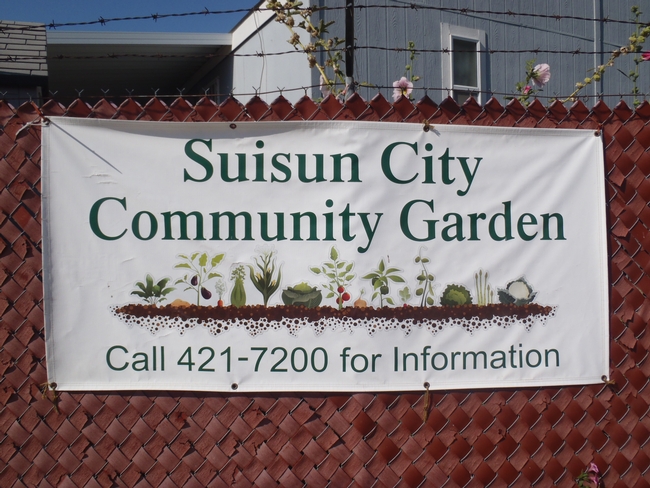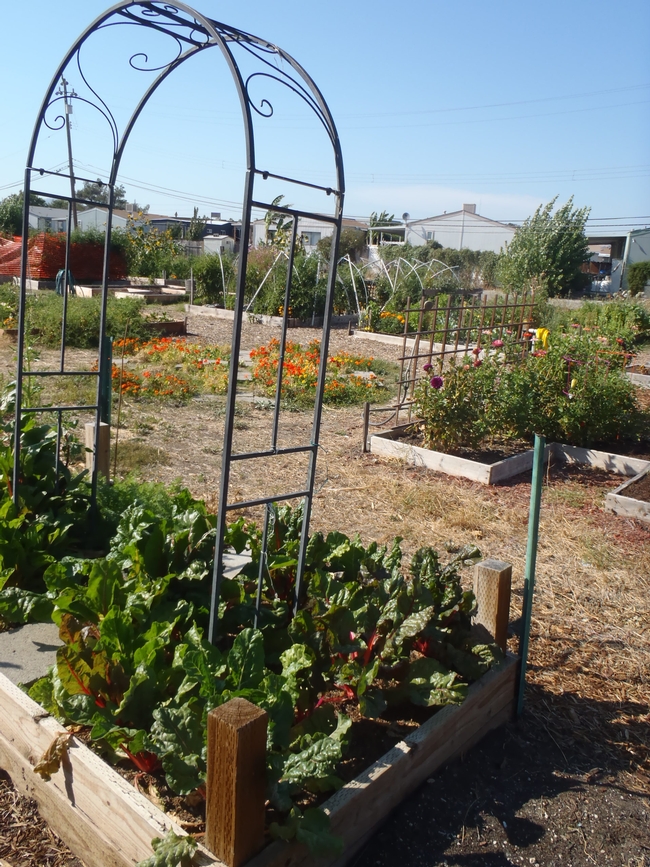- Author: Sharon L. Rico
Up on a mountain, hidden from general view at the Sea Ranch, is Posh Squash, a one acre community garden that has existed on leased land since 1975. Knowing that my husband and I love to garden and volunteer, our niece and nephew, took us to see their local community garden. We walked 15 minutes up the hill, hiked another 15 minutes on dirt paths through the redwoods. Eventually coming to a fence, we read the sign above the gate that stated, “Visitors: Look, But Pick Not.”
This organic garden consists of row after row of raised beds, each planted with a specific variety of vegetable, herb or flower. All the beds are labeled with handmade wooden signs. There are fruit trees, pumpkins, watermelons, and berries growing outside and around the raised beds. One of the outbuildings contains equipment, supplies and organizational lists, a second is a hoop house with flats of tomato plants and another a greenhouse set up with plants being propagated for winter gardening. There is a large area filled with composting bins and piles of rich looking compost. Residents of the Sea Ranch can bring their kitchen scraps and yard trimmings from home to recycle at the garden. Next to the recycling area is an irrigation section where different gauge irrigation pipe and tubing is hung on pegs and marked according to size. At the top of the garden, a bench under an arbor invites one to meditate in the quietness while looking downhill at the garden. The most impressive image of the garden is the organization of its entirety. I know first hand that it takes a village to organize and maintain a community garden like this one.
The interested owners who live at the Sea Ranch (about one hundred members), contribute a yearly fee, then volunteer to maintain the garden. This allows them the right to harvest the rewards of their labor. A chairman oversees the garden and a steering committee meets every spring to make necessary decisions and changes.
In the fall, the garden is covered in sheep wool, sheered from local flocks, to retard weed growth. In the early spring, the soggy wool, full of worms, is collected and the beds are planted anew. Some plants have not grown successfully in Posh Squash and are no longer planted. What hasn’t worked previously are artichokes, okra, eggplant and corn.
The efficiency of Posh Squash rivals that of any community garden that I have seen or read about. After 37 years, the garden still evolves and it is a masterpiece!



- Author: Betty Homer
Are you an apartment dweller or an otherwise landless gardener who has been dreaming about having a little piece of earth to call your own? Or maybe you are just someone who has a small yard and is looking for additional space to garden? If so, consider checking out the Suisun Community Garden located on Lotz Way by the Marina Shopping Center off of Highway 12 in Suisun City. For approximately $30 a year which is intended to cover the cost of water usage, you can lease a 10' x 10' plot at the Community Garden.

Almost all of the Community Garden's current members have built raised beds to grow vegetables which they are doing so successfully, as the site receives full sun daily, even in the winter. At last check, the author of this post observed corn, tomatoes, squash, tomatillos, eggplants, strawberries, artichokes, beans, carrots, radishes, beets, sunflowers, cosmos, dahlias, nasturtiums, and more, growing at the Community Garden.
As an added benefit, most members of the Community Garden are generally friendly, and will happily exchange gardening war stories and tips with you while you are there weeding, watering, etc. Although vandalism and theft can be an issue at the Community Garden from time to time (this is a common occurrence at ANY community garden), there is usually more than enough bounty for you in your plot to harvest and enjoy. It is also not unusual for other Community Garden members to share their harvest with you.

At last count, there were only a dozen or so plots left, so don't delay. For further information, please contact the Joseph Nelson Community Center at (707) 421-7200 or check out the Community Garden's Facebook page.



